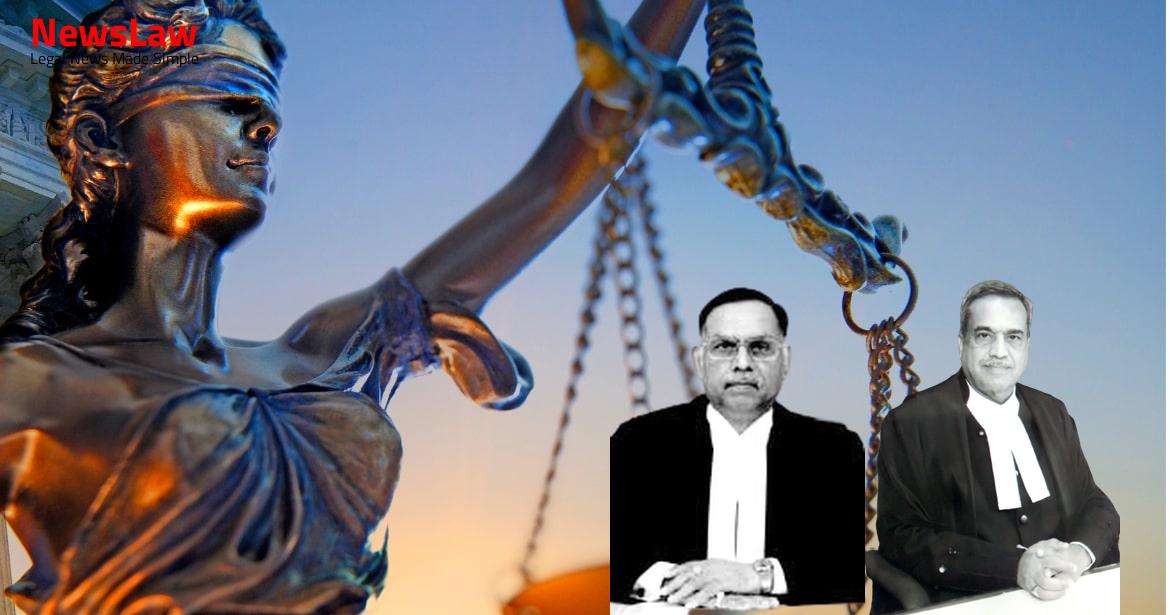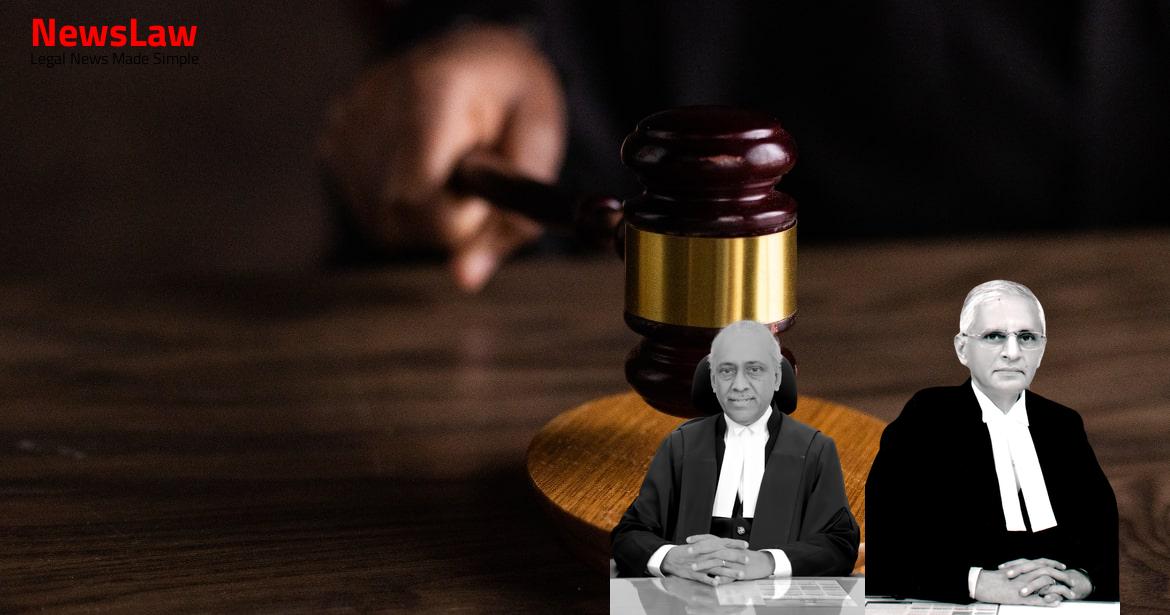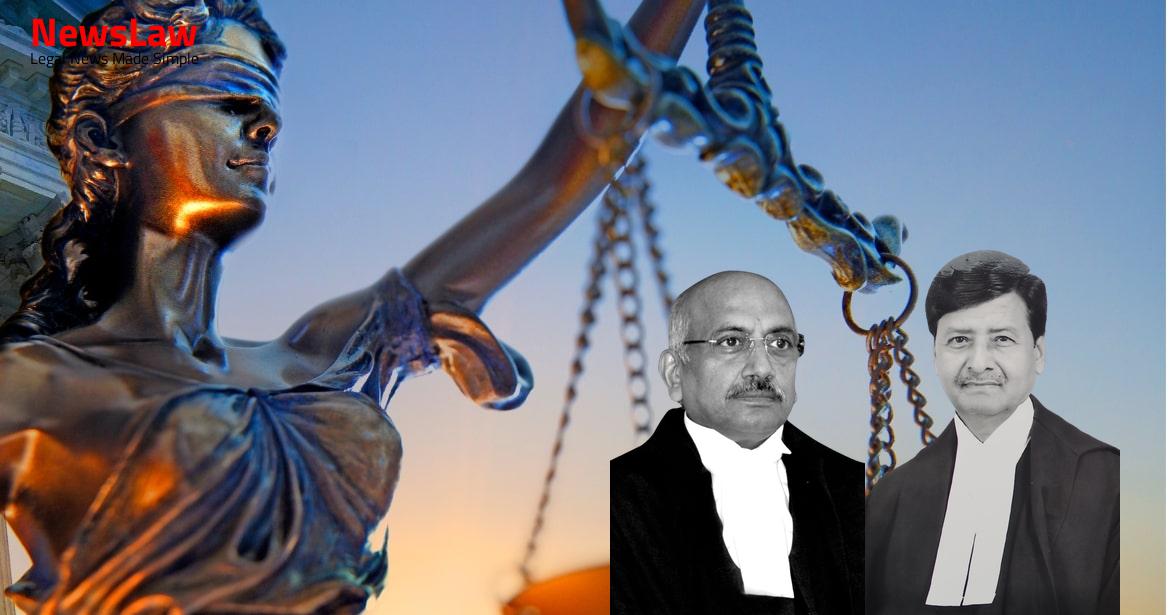Explore the nuanced legal analysis behind a controversial court decision where the High Court overturned a trial Court’s acquittal and convicted the accused in a case involving sexual assault on a victim with mental disabilities. The court’s thorough examination of evidence, consideration of appeal grounds, and assessment of the victim’s mental state are at the heart of this complex legal saga. Stay tuned to unravel the legal reasoning that led to the rare reversal of an acquittal in this compelling case.
Facts
- The High Court allowed the appeal by the State and convicted the appellant for the offences under Sections 376 and 506 of the IPC.
- The original accused was acquitted by the trial Court but convicted by the High Court upon re-appreciation of evidence on record.
- The FIR was lodged by the father of the prosecutrix after being informed of her pregnancy, alleging sexual assault by the accused.
- Medical examinations confirmed the pregnancy of the prosecutrix, her mental condition, and DNA testing established the accused as the biological father of the child.
- The accused was convicted based on the prosecutrix’s mental condition and inability to understand the consequences of the assault.
- The State appealed against the trial Court’s acquittal primarily on the grounds of delay in FIR lodging and the mental state of the prosecutrix.
- After closure of the evidence on behalf of the prosecution, the statement of the accused under Section 313 Cr.P.C. was recorded.
- During the statement, the accused pleaded total innocence.
Also Read: Transfer of Writ Petitions for Chartered Accountants’ Tax Audit Guidelines
Issue
- The main issue to be considered is the justification of the High Court in interfering with the order of acquittal by the trial Court and convicting the accused.
Also Read: Interpretation of Wildlife Protection Act: Schedule I Species Identification
Arguments
- Delay of four months in registering the FIR from the time the incident allegedly occurred was deemed significant by the trial Court leading to the accused’s acquittal.
- Father of the prosecutrix testified that the accused offered to take care of the child but refused to marry the prosecutrix due to being already married with children.
- An 8-month delay in filing the FIR was also highlighted as a point of contention by the appellant’s counsel.
- Prosecutrix was found to be 8 months pregnant the day after the FIR was registered, raising doubts about the family’s awareness of the pregnancy.
- Conflicting accounts from psychiatrists regarding the languages known to the prosecutrix cast doubt on the claims of mild mental retardation.
- Material contradictions in the testimony of the prosecutrix and her family members questioned the veracity of the case.
- High Court’s reliance on medical evidence indicating the prosecutrix’s mental condition was contested, alleging a vengeful motive behind the FIR filing.
- The accused took advantage of the mental condition of the prosecutrix, who was not in a position to understand the consequences of sexual assault.
- The accused did not admit to the sexual intercourse with the prosecutrix, even though she was pregnant and delivered a child.
- The accused’s 313 statement denying the allegations was considered false as he did not state the true facts.
- The minimum sentence for the offense under Section 376 is seven years and can only be reduced with special reasons.
- The High Court awarded seven years of RI for the offense, showing leniency in view of the victim’s mental condition and the accused taking advantage of it.
- Citing the case of Krishna v. State of Karnataka, the appellant argued against the reversal of acquittal by the High Court.
- The appellant requested to either quash the judgment or reduce the sentence based on the four years already served by the accused.
- The State, in opposition, supported the High Court’s decision to reverse the acquittal, emphasizing the victim’s mental condition and the correctness of the re-appreciation of evidence by the High Court.
- The State also addressed the issue of delay in lodging the FIR, which had been considered by the High Court.
Also Read: Taxation of Lotteries: Legal Analysis of Goods Definition
Analysis
- High Court acted within the parameters of the law in the decisions referenced.
- In the 313 statement, the accused denied the charges completely.
- Consideration of the law on appeal against acquittal and scope of Section 378 Cr.P.C. is necessary.
- The High Court imposed the minimum sentence of seven years RI, showing leniency.
- The victim’s low IQ and mental illness were crucial in the case.
- The accused utilized the victim’s mental state to his advantage.
- The medical evidence indicated the victim’s incapacity to understand the nature of the assault.
- The High Court was justified in finding the accused guilty under Sections 376 & 506 IPC.
- In appeals against acquittal, the High Court can review the evidence and draw its own conclusions.
- The presumption of innocence for the accused continues until the appellate stage.
- The victim’s mental condition and the accused’s paternity were key factors in the case.
- The High Court re-appreciated the evidence and found the accused guilty, reversing the trial court’s acquittal.
- The High Court should give proper weight to the trial judge’s views on credibility of witnesses, presumption of innocence, and benefit of any doubt.
- In exceptional cases with compelling circumstances, the appellate court can interfere with the order of acquittal.
- Various circumstances, such as an erroneous view of law, illegal approach to evidence, or manifestly unjust judgment, justify interference with an acquittal.
- The appellate court can review evidence for perversity, irrationality, or errors in excluding relevant material.
- The appellate court should not disturb a finding of acquittal if two reasonable conclusions are possible based on evidence.
- The accused has been convicted by the High Court for sexual assault on a mentally retarded victim.
- The victim had an IQ of 62, indicating her mental disability.
- The accused took advantage of the victim’s mental sickness/illness for his own benefit.
- Individuals with mental disorders or illnesses require special care, love, and protection, and should not be exploited.
- The exploitation of the mentally ill victim by the accused is evident in this case.
Decision
- The present appeal has failed to meet the necessary requirements
- The appeal is deemed to be dismissed
- The appeal is officially dismissed
Case Title: CHAMAN LAL Vs. THE STATE OF HIMACHAL PRADESH (2020 INSC 675)
Case Number: Crl.A. No.-001229-001229 / 2017



